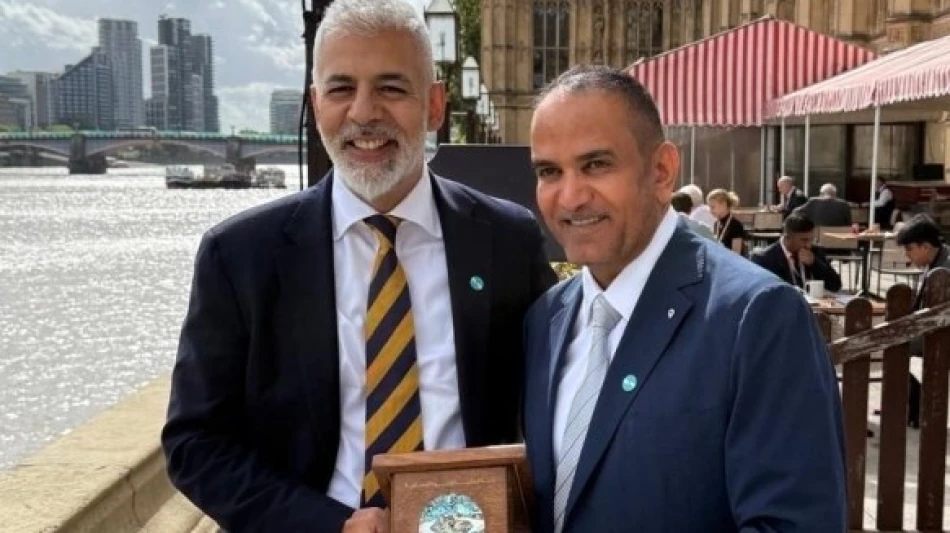
Humanity's Fraternity: British Lords and UAE Explore Initiatives to Promote Global Coexistence
UAE's Human Fraternity Committee Forges Strategic Alliance with British House of Lords
The Higher Committee of Human Fraternity, a UAE-backed interfaith initiative, has entered discussions with the British House of Lords to develop joint programs promoting religious tolerance and cross-cultural understanding. The collaboration signals a deepening of soft diplomacy efforts between the Gulf nation and the UK, targeting parliamentarians, academics, and youth across both regions.
High-Level Diplomatic Engagement in London
Ambassador Dr. Khalid Ghanem Al Ghaith, Secretary-General of the Higher Committee of Human Fraternity, met with Lord Krish Raval at the House of Lords in London to outline potential cooperation frameworks. The discussions centered on creating structured initiatives that would engage political leaders, educational institutions, and young people in promoting dialogue and mutual understanding.
The meeting represents a significant step in the committee's international outreach strategy, moving beyond symbolic gestures toward concrete programmatic partnerships with established Western institutions.
Strategic Context: UAE's Global Tolerance Diplomacy
This collaboration builds on the UAE's broader strategy of positioning itself as a global hub for interfaith dialogue and religious tolerance. The Higher Committee of Human Fraternity was established following the historic 2019 meeting between Pope Francis and Grand Imam Ahmed Al-Tayeb in Abu Dhabi, which produced the Document on Human Fraternity for World Peace and Living Together.
The UAE has systematically leveraged this initiative to strengthen diplomatic ties with Western nations, particularly as regional tensions persist across the Middle East. By partnering with prestigious institutions like the House of Lords, the Emirates enhances its soft power credentials while offering tangible programs that address contemporary challenges around religious extremism and social cohesion.
Implications for UK-Gulf Relations
Economic and Political Dimensions
The partnership comes at a time when the UK is actively strengthening post-Brexit relationships with Gulf Cooperation Council nations. Beyond the immediate interfaith focus, such collaborations create frameworks for deeper economic and security cooperation between London and Abu Dhabi.
For British parliamentarians, engagement with UAE-backed tolerance initiatives provides opportunities to address domestic challenges around social integration and religious harmony, particularly relevant given the UK's diverse Muslim population and ongoing debates about multiculturalism.
Competitive Positioning in Global Diplomacy
This move positions the UAE ahead of regional competitors like Saudi Arabia and Qatar in terms of institutionalized interfaith diplomacy with Western powers. While Saudi Arabia has launched its own modernization initiatives, the UAE's systematic approach to building formal partnerships with legislative bodies demonstrates a more sophisticated soft power strategy.
The collaboration also reflects the UK's pragmatic approach to Middle Eastern partnerships, prioritizing stable, economically valuable relationships over ideological alignment as it navigates post-Brexit global positioning.
Most Viewed News

 Layla Al Mansoori
Layla Al Mansoori






